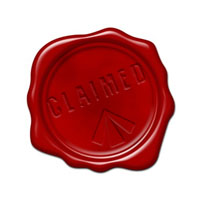Researchers who have claimed this convict
There is currently one researcher who has claimed John Eyles
- Researcher (Kelvin Skyrme)
|
 |
Biographies
The trial of John Eyles in August 1786 caused something of a stir among the good folk of Hereford, by setting all sorts of legal records, it seems. At the sitting of the summer assizes on 20th August, presided over by Lord Justice Burton, John Eyles, a genteel looking, well dressed man was observed by Mr. Lane, the Court Crier, to be pressing himself unnaturally close to a local gentleman farmer by the name of Mr. Trumper. Mr. Lane drew the attention of Lord Burton's Marshall, Mr. Wells, to this unusual behaviour and requested the Marshall to keep an eye on him. Mr. Wells soon suspected the man of having picked the pocket of the farmer so approached Mr. Trumper and asked him to check whether he was missing anything. He confirmed that his canvas purse, containing five guineas (£5.25p), half a crown (12½p) and some shillings (5p's) was missing. Mr. Wells immediately set off in pursuit of the culprit and soon caught up with him. He secured both his arms and dragged him into a shop, where he accused him of the theft, describing the purse and it's contents. While Mr. Wells sent for assistance, in order to search and secure the suspect, John Eyles slipped the purse out of his pocket and put it on the shop counter. Unfortunately for him, he was spotted doing this by Wells, who told him that it would do him no good as Mr. Trumper was on his way to attest to the fact that it was his purse, and where he had missed it. Eyles was taken back to the court, where the judge was informed of the circumstances. A bill was placed before the jury who found it to be true and proper. The prisoner was therefore arraigned and tried there and then, and on the overwhelming evidence against him convicted. The learned Judge was outraged that such an offence had taken place in his court and expatiated largely the heinous nature of the offence, particularly that it was committed in a Court of Justice, where the lives of other criminals were, at that moment, the subject of solemn inquiry. Apparently the Judge ranted for quite a while, before sentencing John Eyles to death. It was noted as a particularly singular occurrence that a man should enjoy perfect liberty, commit the crime, be imprisoned, tried, convicted and sentenced within the space of three hours. The Judge also indicated that he wanted the sentence carried out with equal rapidity to deter any other would-be miscreants from abusing his Court. Possibly thinking that he had over-reacted, due to the location of the crime and hastiness of the proceedings, two days later, Francis Burton, the Judge, sent by express to the Sheriff's office in Hereford, a respite pending further orders. Three years later, in December 1789, John Eyles boarded a ship bound for New South Wales, Australia, where he had been ordered for life. He was transported aboard the ship 'Scarborough', arriving in New South Wales on 26th June 1790, part of the notorious 'Second Fleet'.
Submitted by Researcher (Kelvin Skyrme) on 10 August 2021
|
Disclaimer: The information has not been verified by Claim a Convict. As this information is contributed, it is the responsibility of those who use the data to verify its accuracy. Research notes
There are currently no research notes attached to this convict. |

